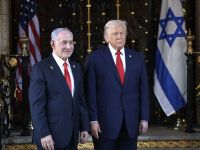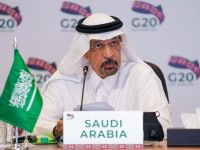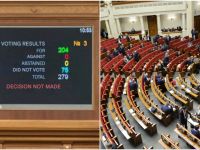Yemeni political sources revealed to The Arab Weekly on Sunday that President Abd Rabbo Mansour Hadi has received the latest draft of a comprehensive ceasefire initiative prepared by UN Special Envoy to Yemen Martin Griffiths.
The sources, who spoke on condition of anonymity, said that the Yemeni presidency is working on putting new notes on the joint ceasefire declaration in its fourth version. They added that the UN envoy had also delivered a copy to the Iran-backed Houthis during a meeting with their negotiating delegation in Muscat last Monday.
The UN envoy’s media office did not respond to questions by The Arab Weekly’s correspondent about Griffith’s recent diplomatic moves, concerns raised about his alleged bias towards the Houthis and whether progress had been made in pushing the UN initiative, commonly known as the joint declaration, forward.
The UN envoy’s media office said they would provide e-mailed responses to the Arab Weekly’s questions, but failed to follow up or apologise for their failure to respond.
Yemeni political sources say that Griffiths’ initiative, which is considered a combination of the results of the Kuwait consultations and the initiative of former US Secretary of State John Kerry, is an attempt to create new ground for a settlement in Yemen, preparing for a new round of consultations between the Yemeni government and the Houthis this November in Switzerland.
Political sources confirmed to The Arab Weekly that the UN envoy’s reluctance to apply any additional amendments to his initiative in its fourth version. This comes despite the government’s active call for Griffiths to review the declaration and the Houthis’ insistence on securing some amendments in an attempt to obtain more political and economic gains.
The European Union and Britain are increasing pressure on the Yemeni government to accept the latest version of the joint declaration, threatening to pass the initiative through the UN Security Council in the event that a Yemeni consensus on it falters during the upcoming meeting between the government and Houthis.
The draft joint declaration submitted by Griffiths in early July, the details of which The Arab Weekly revealed at the time, stipulates a comprehensive ceasefire in all parts of Yemen, including the fronts in which non-government actors are involved in confrontations with the Houthis.
Leaks of the draft declaration’s text show that it would also expand “the circle of humanitarian and economic measures to alleviate the suffering of the Yemeni people.”
The declaration also stresses that the two parties should commit to “a complete cessation of all land, air and sea military offensive operations, including the redeployment of forces, heavy and medium weapons and ammunition.”
It urges the cessation of air and ground attacks on Saudi territory as well as the formation of a military coordination committee headed by the UN, with members from parties to monitor the ceasefire and hold meetings at least weekly.
The plan also includes proposals to open up the main roads to cities, especially in Taiz, Sana’a, Hodeidah, Marib, Saada and Al Jawf and pay the salaries of all civil servants in the country according to the 2014 payroll.
The plan calls for the Marib-Ras Isa pipeline to be repaired so it can resume pumping oil for the safety of the dilapidated “Safer” oil tanker to be ensured and for the Marib gas power station to be restarted. It would also lift restrictions on the entry of container and oil derivative ships to the port of Hodeidah, reopen Sana’a International Airport and allow humanitarian, commercial and civil flights to land.
The agreement includes the formation of a joint committee to address the technical and financial aspects of repairing the Marib-Ras Isa pipeline, which experts say would give the Houthi group involvement in allocating state resources outside its control. Such a factor explains why there is increasing Houthi military pressure on the Marib governorate and the militias’ threat to invade it.
The Yemeni foreign ministry accused some unnamed countries of trying to impose dictates on the Yemeni government.
Yemeni Foreign Minister Muhammad al-Hadrami said in a tweet, “We appreciate the keenness of international friends and partners to achieve peace in Yemen, and we affirm our commitment to end hostilities and ensure the success of the efforts of the UN envoy. However, we reject any foreign dictates of any nature while remaining keen on protecting our people and alleviating their suffering.”
The Yemeni government’s position came in response to a tweet by British Ambassador to Yemen Michael Aaron in which he said, “President Hadi and the Houthi leadership must work seriously and urgently with the UN envoy to end the war in Yemen by concluding the Joint Declaration in order to avert a humanitarian catastrophe. The long suffering Yemeni people deserve no less.”
Prominent leaders in the Yemeni government reaffirmed their rejection of Griffiths’ initiative in its current version, which they described as similar to the peace and partnership agreement signed between the Yemeni government and the Houthis under the auspices of former UN Envoy Jamal Benomar on the eve of the Houthi invasion of Sana’a.
In this context, , Najib Ghallab, undersecretary of the Yemeni Information Ministry, described the joint declaration as the UN envoy’s latest effort to achieve peace through UN techniques that usually fail to achieve solutions.
The techniques, Ghallab said, “legitimise the perpetuation of conflicts in complex files such as the Yemeni file, allowing the Houthis to impose their conditions, overturn previous agreements and set their demands and ambitions as a main objective of this declaration.”
Ghellab said in a statement to The Arab Weekly, “Let us suppose the government agrees to this declaration under the pressure of the US and western countries, will we really reach the required peace that could lead us to a state of citizenship and allow us to establish security and stability to protect Yemenis? Will this make Yemen a safe country and neighbour that commits to international peace and security? Can this be achieved while all indications confirm that we are facing a complex crisis as a result of the UN’s moves, which have been legitimising rebellion and chaos and serving agendas that undermine the Yemeni state?”
Other Yemeni government officials said they could show some interest in the joint declaration if it were signed before the implementation of the provisions of the Riyadh Agreement and the formation of a new Yemeni government, with the participation of the Southern Transitional Council (STC).
According to these officials, Griffiths’ initiative represents a closed bilateral agreement between the government and Houthis, excluding the STC from the final consultations. This, the officials believe, will be an opportunity to free the government from the burdens and entitlements of the stalled Riyadh Agreement, which holds up the STC as an essential partner in the internationally recognised political camp.
Recent developments indicate that the legitimate government of Yemen could yield to Western pressure if this pressure escalates and involves threats of international sanctions.
The accelerated interactions in the Yemeni file indicate the international community and the United Nations are betting on ending the dispute between the anti-Houthi components before moving on to a new round of consultations, in which the UN envoy to Yemen will to exploit the partial success achieved in the Swiss meeting on the prisoners’ file.
In recent days, the Yemeni government witnessed a flurry of moves to form a new government based on the Riyadh Agreement, with Hadi meeting Sunday with Prime Minister-designate Maeen Abdul-Malik, in addition holding a meeting that included the House of Councillors.
This comes as Iran seeks to reap the fruits of its support for the Houthi militia since the beginning of the war by sending a military governor whose declared presence in Sana’a and dominance over the Houthi political decision will prevent any agreement for a comprehensive solution in Yemen in which Iran’s interests are not ensured to be signed, sources say.
The sources indicated that the assassination of the Minister of Youth in the Houthi government and the head of the Al-Haq Party, Hassan Zaid, may be an Iranian message accompanying the arrival of Islamic Revolutionary Guard Corps’ officer Hassan Erlo to Sana’a as Tehran’s ambassador.
The sources noted that Tehran fears the involvement of any Yemeni government party in the Houthi camp would jeopardise its strategic interests by prioritising Yemen’s national interest, especially given that Zaid accused Tehran in October 2019 of prioritising its interests over the interests of its allies in Yemen. He also criticised Iran’s desire to turn the Houthis into a tool to sustain the conflict with Saudi Arabia and block any settlement.
This article has been adapted from its original source.







